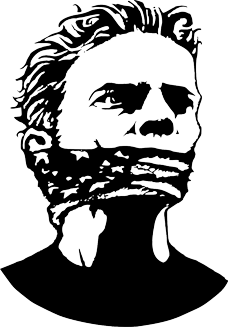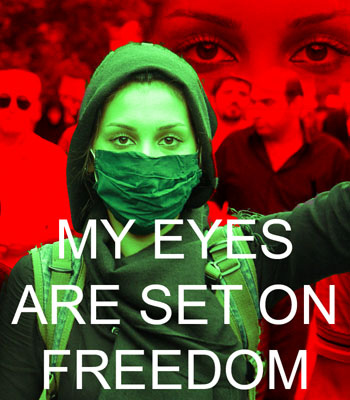The Wizard of Oz was written in 1899 by the theosophist Frank Baum consciously as a myth of American life at the turn of the century – the search for happiness, wellbeing and wealth by each character achieving a missing virtue – intelligence, compassion and courage. The myth became a widely-viewed 1939 film in which Dorothy and her pet dog Toto are blown away from their typical American farm house to a strange, unrecognizable land. In a famous line, Dorothy looking around says “Toto, I guess we are not in Kansas anymore”.
The US media, largely followed by those of other countries, in their reporting, have concentrated on the two main contestants for president: Hillary Clinton and Donald Trump with an occasional mention of Gary Johnson, former Governor of New Mexico, grown wealthy as a businessman and Jill Stern, a medical doctor leading the Green Party ticket. In the US political culture, the candidate for vice-president is chosen to “balance the ticket” - to reach out to a part of the population that the presidential candidate does not reach as well – a person from the West Coast to balance a candidate from the East Coast has been the usual pattern. Usually fingers are kept crossed that the president will live to finish his term and that the vice-president can just play an undefined role as helping hand. Thus, there is usually little media attention given to the person chosen as vice-president. Among those largely ignored by the press has been Amiri Baraka, vice-president candidate for the Green Party but who is colorful enough (in all senses of the word) to play the role of the wonderful Wizard of Oz. Amiri Baraka was born as LeRoy Jones the same month – October- the same year-1934- and in a city close by. Thus, we must have some of the same astrological currents in our character. Both of us have spent much of our lives dealing with human rights issues, he for Amnesty International in the USA while I was close to the “founding fathers” of Amnesty in London and Geneva. However, astrology cannot make two people completely similar. LeRoi Jones is Black and grew up in Newark, New Jersey which at the time already had a large Black population which now has become a large majority – perhaps 70%. I am White and grew up 30 minutes further down the train line in an area where I cannot recall a Black living. He must also have more energy than I, as at 82 I do not see myself running around the USA giving speeches especially as the Green Party has little support in those States that have a concentrated Black population. At some point in the early 1970s when Black Consciousness had spread from South Africa to the USA, LeRoy Jones who had already made a certain reputation as a writer of plays and essays changed his name to an African-sounding one, though Baraka is an Arab word for fate and not an African family-tribal name. In practice, Baraka has been concerned with liberation movements in Central America rather than with African political movements. In this campaign, he has been sharing the stage with Olivia Caceres, daughter of the assassinated Honduran environmental activist Berta Caceres. Baraka speaks Spanish having done his military service in Puerto Rico, but his enthusiasm for Fidel Castro is not likely to draw the votes of the large Cuban exile population in Florida. His account of a visit to Cuba and his meeting with Castro gives a good picture of Left support during the early days of the Cuban Revolution. (1). There is a certain irony of history that two of the issues on which LeRoy Jones had focused as a young man, the Cuban Revolution and police brutality toward Blacks have come back as major issues with the “normalization” of US-Cuban relations and filmed accounts of police shooting unarmed Blacks – leading to a major political current “Black Lives Matter”. For Baraka as for Bruce Franklin, a Newark university professor he quotes “The most distinctive feature of United States history is Afro-American slavery and its consequences. The truth is at the heart of our political, economic and social experience as a nation state. It is also at the heart of our cultural experience, and therefore, the slave narrative, like Afro-American culture in general, is not peripheral but central to American culture.” Baraka's analysis of the Black experience is in a Marxist-class antagonism framework. The US Communist Party influence in the Black community in the late 1930s-early 1940s was before his time, but his Marxist analysis of the different currents within Black society leads him to stress the impossibility of a consolidated Black social movement. He is close in spirit to the post-House of Islam Malcolm X. “Malcolm X influenced a whole generation of black people and other nationalities as well...The revolutionary nationalism of Malcolm X could not exist within the cultural and religious nationalism and black capitalist framework of Elijah Muhammad's Nation of Islam.” The Green Party has a culture of “balancing the presidential ticket with interesting people who do not bring in new voters. The first two campaigns with Ralph Nader leading the ticket had Winona LeDuke as running mate. LeDuke is what we still call an American Indian though she headed a group called the “Indigenous Women's Network.” Again, there is a certain irony to history as in this campaign season, the Indian protests against the confiscation of land and possible pollution of the water table by an oil company has become a major political event. However, Indians as a group rarely vote in presidential elections for a number of reasons. It is probable that Baraka will not draw many votes to the Green Party. However, there has been progress over past elections by having the Green ticket on the regular ballot in States with 90% of the population, thus not requiring a voter to “write in” a name of a candidate. Thus the number of Green voters may be higher than in past elections. For Amiri Baraka the experience of being a political candidate, never having run for an office before, might be summed up in his own words “The purpose of myself has not yet been fulfilled. Perhaps it will never be. Just these stammering and poses. Just this need to reach into myself and feel something wince and love to be touched.” ***************************** Note (1) Quotes are from Amiri Baraka/LeRoi Jones. Selected Plays and Prose (New York: William Morrow and Co., 1979) ***************************** Rene Wadlow, President, Association of World Citizens Copyright mediaforfreedom.com | |
Find us on Facebook
Find us on Twitter


 The Land of Oz is where many think they may be as the US election comes down the last lap to
The Land of Oz is where many think they may be as the US election comes down the last lap to 